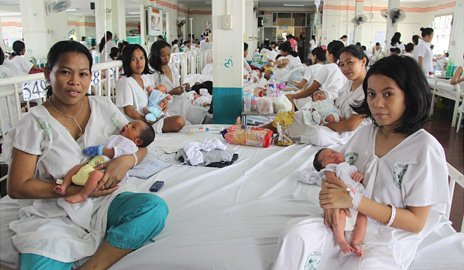According to the Department of Health (DOH), more than 10 million Filipino women still do not have access to family planning services, which raises their risk of unplanned pregnancies.
The country is 17 percent behind its FP2030 target of 75 percent family planning demand satisfaction with modern technologies by 2030, according to Dr. Ron Allan Quimado of the DOH’s Child, Adolescent, and Maternal Health Division.
We are at 58 percent right now. Assuming that demand remains steady, we must serve about 10.177 million women in order to meet our goal, Quimado stated during the 2024 National Conference on Family Planning in Pasig City.
In 2023, 12.9 million women, or 44 percent of the population, required family planning services. Of these, 8.7 million (67 percent) of women aged 15 to 19 years were already using modern methods such as oral pills, injectables, and female sterilization.
Oral contraceptive pills remain the top choice, used by 25 percent of current users. Injectables follow with 20.66 percent, while female sterilization accounts for 9.48 percent. Among long-term options, implants showed the highest growth, increasing by 24.11 percent and becoming the fourth most common method.
In 2023, the use of modern family planning methods prevented approximately three million unintended pregnancies, 800,000 unsafe abortions, and 970 maternal deaths. Despite these successes, Quimado emphasized the need to address gaps in access for over 10 million women.
Commission on Population and Development (PopCom) executive director Liza Bersales highlighted a steady decline in fertility rates nationwide, driven largely by poorer communities. She noted that women across all social and educational backgrounds now desire fewer children.
“This highlights the need to prioritize family planning services for underprivileged and less-educated women,” Bersales added.
Health Secretary Ted Herbosa also voiced concerns about the rising number of pregnancies among girls under 15 years old, calling it a “major issue.”
“Teenage pregnancy is a leading contributor to maternal mortality. Many young mothers do not undergo prenatal check-ups, putting their lives at risk,” Herbosa said. Addressing teenage pregnancy, he added, would significantly lower maternal mortality rates.




